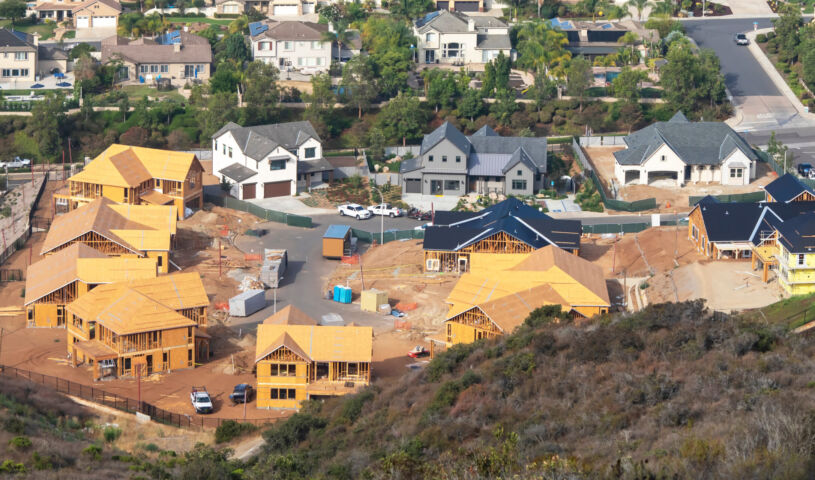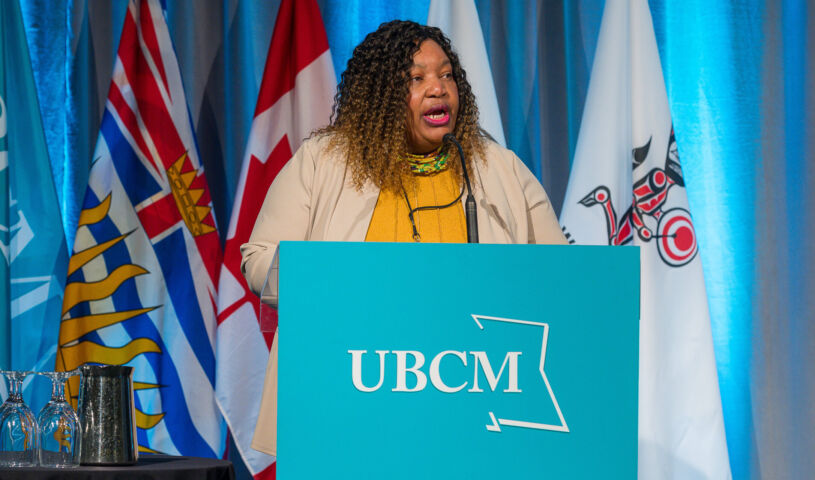Quebec announces new housing strategy, but critics skeptical
 While the Quebec government was touting its newly announced housing strategy, critics argued that not enough is being done to address the housing shortage. Photo: Adobe Stock
While the Quebec government was touting its newly announced housing strategy, critics argued that not enough is being done to address the housing shortage. Photo: Adobe Stock
Quebec’s minister of housing, France-Élaine Duranceau, has said the provincial government is dialing up efforts to increase housing stock. In a recent statement announcing a new housing strategy, Duranceau said the province wants to increase the number of housing units in Quebec by 560,000 over the next 10 years – that’s 115,000 more than its previously announced targets.
As part of those efforts, Duranceau said unused government buildings will be converted into residential units. In addition, cities that ease some regulations around construction will receive financial “bonuses” from the provincial government. The government is also calling on private developers to build 500 prefabricated homes over the next 18 months.
“We need to create an environment that’s more favourable toward construction,” Duranceau said at a press conference. “We need multiple solutions in the current situation. This is a pilot project. It’s not going to solve the housing crisis by itself, but it’s one more tool.”
The province’s biggest city, Montreal, welcomed the announcement, calling it “good news.” Duranceau also said the government would build more than 23,000 social or affordable housing apartments to assist those struggling to make ends meet.
However, Duranceau’s announcement did not include mention of any additional funding related to the strategy. She said that the provincial government has already invested $6.3 billion in housing, “including $3.7 billion that will be deployed in the coming years.”
Critics Say It’s Not Enough
While the government touts it efforts, critics say they are not doing enough to address the housing shortage. Québec Solidaire MNA and housing critic Andrés Fontecilla said the government’s strategy is “a total failure,” saying that it contained “nothing new.”
The Federation of Quebec Municipalities said it is disappointing that smaller communities – those with fewer than 10,000 residents – were not included in the strategy. However, not all critics have been as harsh in their appraisal of the strategy. The Montreal Economic Institute (MEI), a think-tank based in the city, said the government plan is realistic but that it still falls short of what Quebec needs to make housing affordable.
The Canada Mortgage and Housing Corporation estimates that Quebec needs around 1.2 million homes to return prices to an affordable level by 2030. “The Minister has correctly singled out the role of regulation in the recent increase in housing prices,” said Gabriel Giguère, senior policy analyst at the MEI.
According to the Coalition of Housing Committees and Tenants Associations of Quebec, the average rent in Montreal increased by 27 per cent between 2020 and 2024. The increase was even sharper in other cities. Rents increased by 33 per cent in Quebec City, 44 per cent in Sherbrooke, and 50 per cent in Trois-Rivières.
“While the minister’s targets don’t reach the levels estimated necessary by the CMHC, they do have the merit of being realistic in terms of the availability of labour and the regulatory constraints on increasing it,” Giguère said. “Quebec could aim even higher by taking down the walls between the various trades, but the plan proposed by Ms. Duranceau nonetheless represents a step in the right direction.”
Giguère added that there isn’t anything in the strategy that signals cities will be encouraged to make the required changes. “While the causes are properly identified and what’s required from cities is clear, nothing is proposed to encourage cities to make the right changes,” he said.
Property Owners “Neglected”
Those representing landlords have also criticized the strategy, saying private owners have been neglected. In a press release, the Québec Landlords Association (APQ) said it was pleased the government wants to modernize rental housing, but added, “These energies are not being put in the right places.”
Martin Messier, president of the APQ, said homeowners feel like they are not being listened to. “The private sector also has many needs, and the government seems to only want to change laws to strengthen tenants’ rights and build while neglecting private housing, which nevertheless houses more than 1.3 million people,” Messier said.
“The APQ is asking the government to take real action to support homeowners, a concrete action to recognize private landlords as important and supported for their essential impact on the lives of tenants,” the association’s statement reads.
Homebuilding Consultations
Earlier this month, François-Philippe Champagne, the federal innovation minister, and Sean Fraser, the federal housing minister, launched a consultation to get additional ideas on accelerating innovation and productivity in Canada’s homebuilding industry.
“Creating an Industrial Housing Strategy for Homebuilding is another way we’re leading a Team Canada approach to overcome the housing crisis,” Fraser said. “Through meeting the housing sector’s needs, fostering innovation within it, strengthening supply chains, and supporting productivity, we will help ensure that everyone has a safe and affordable place to call home.”
An expert panel, comprising experts from Canada’s homebuilding sector, will support the consultation and provide advice to the ministers on how to boost the capacity of the industry.
In Canada’s Housing Plan – released in spring 2024 – the federal government committed to supporting homebuilders, but also acknowledged the need to build homes smarter, faster, and at prices Canadians can afford. As material prices rise and tight labour markets persist, we’re committed to an all-hands-on-deck approach to a productive homebuilding sector.
The cost to construct a residential building in Canada has increased by 58 per cent since 2020, well outpacing the overall inflation rate of 15 per cent. Debt financing makes construction sector firms sensitive to higher interest rates, as interest payments currently take up 40 per cent of the construction industry’s net income compared with 23 per cent for other firms in the economy. MW
✯ Municipal World Executive and Essentials Plus Members: You might also be interested in Joey Cyples’ article: Sustainable, responsible, available net-zero transportation now.
Ibrahim Daair is staff writer at Municipal World.
Related resource materials:


